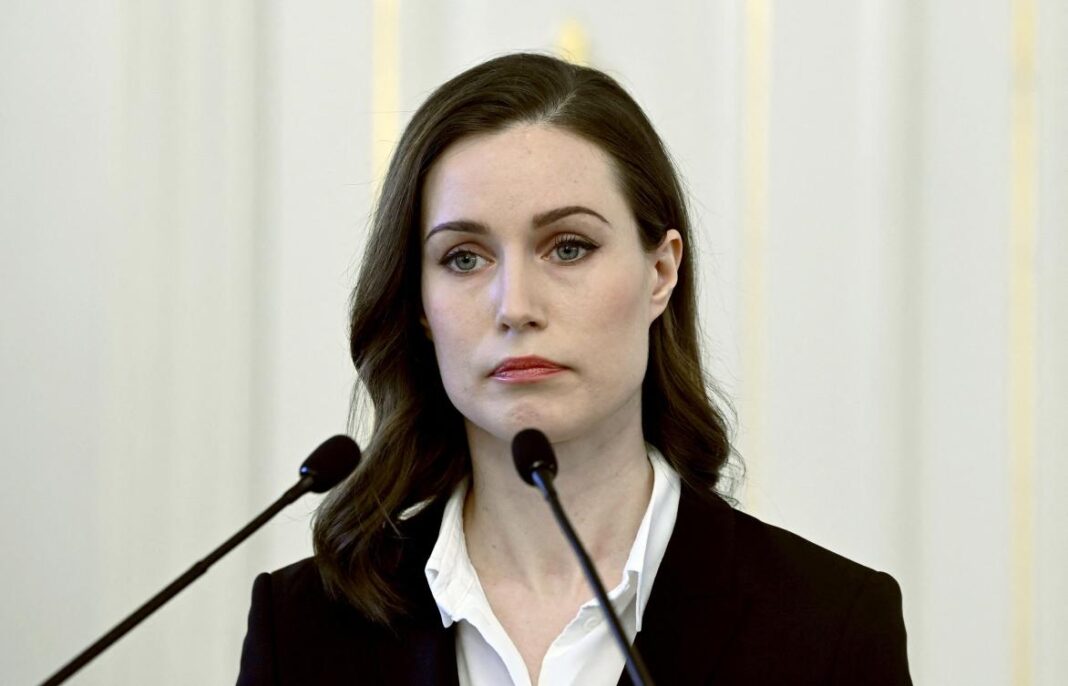HELSINKI: The Finnish government is expected to officially announce its intention to join NATO on Sunday, as Sweden’s ruling party holds a decisive meeting that could pave the way for a joint application.
Less than three months after Russia’s February 24 invasion of Ukraine, the two Nordic neighbors look poised to reverse policies on military non-alignment dating back more than 75 years in Finland and over two centuries in Sweden
“Hopefully we can send our applications next week together with Sweden,” Finland’s Prime Minister Sanna Marin said on Saturday.
The countries broke their strict neutralities after the end of the Cold War by joining the EU and becoming partners to NATO in the 1990s, solidifying their affiliation with the West.
But the concept of full NATO membership was a non-starter in the countries until the war in Ukraine saw public and political support for joining the military alliance soar in both countries.
Finland has been leading the charge, while Sweden appears anxious at being the only non-NATO country around the Baltic Sea.
Many Swedish politicians have even said their support is conditional on Finland joining.
Three days after publicly saying their country “must apply for NATO membership without delay,” Finnish President Sauli Niinisto and Prime Minister Sanna Marin are due to announce Helsinki’s decision on whether to seek membership at a news conference at 1 p.m. (1000 GMT).
After a government council meeting, they are expected to submit a membership proposal to parliament on Monday.
On Saturday, the Finnish head of state phoned his Russian counterpart President Vladimir Putin to inform him of his country’s desire to join NATO, in a conversation described as “direct and straightforward.”
“Avoiding tensions was considered important,” Niinisto was quoted as saying in a statement by his office.
But Putin responded by warning that joining NATO “would be a mistake since there is no threat to Finland’s security,” according to a Kremlin statement.
According to recent polls, the number of Finns who want to join the alliance has risen to over three-quarters, triple the level seen before the war in Ukraine.
In Sweden, support has also risen dramatically, to around 50 percent — with about 20 percent against.
The senior leadership of Sweden’s Social Democrats, led by Prime Minister Magdalena Andersson, is due to meet on Sunday afternoon to decide whether the party should abandon its historic stance against joining, last reaffirmed at the party’s annual congress in November.
A green light from the ruling Social Democrats would secure a firm majority in Sweden’s parliament in favor of joining.
While the party’s leading politicians have seemed ready to reverse the decision, critical voices within have denounced the change in policy as rushed.
But analysts say it is unlikely that the party will oppose the move.
“There will perhaps not be the same sense of urgency,” as in Finland, defense researcher Robert Dalsjo, an analyst at the Swedish Defense Research Institute (FOI), said.
“But the leaders in Sweden have realized that they really don’t have another choice, once Finland has,” he added.
NATO membership needs to be approved and ratified by all 30 members of the alliance.
While Finland and Sweden claim to have had favorable signals from Ankara, Turkish President Recep Tayyip Erdogan has expressed his opposition.
Turkey’s objections, directed in particular at Stockholm, focus on what it considers to be the countries’ leniency toward the Kurdistan Workers’ Party (PKK), which is on the EU’s list of terrorist organizations.
However, Turkish Foreign Minister Mevlut Cavusoglu said he was ready to discuss the matter with both countries, as well as with other NATO nations.
Finnish Foreign Minister Pekka Haavisto said he was “confident” of reaching an agreement with Turkey.
Turkey opposes NATO membership for Finland, SwedenCrucial NATO decisions expected in Finland, Sweden this week




